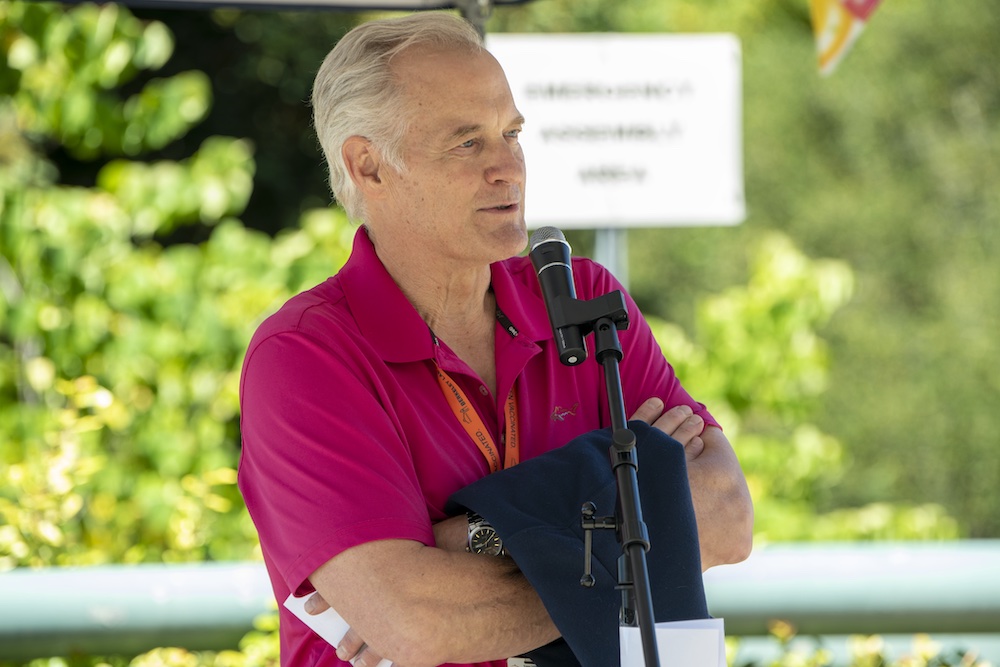
Over the last several months we have announced my retirement broadly, in a number of venues visited by the ALS community. All the attention has been a little embarrassing for me, but I’m now over that and the time has actually arrived for me to officially retire and step down from my position as ALS director.
After about 40 years of engagement in planning, using, and managing the facility, it would be inconceivable for me to be disconnected from the ALS and its community. And, indeed, that is not my plan at all. I am already advising the interim director and management team to ensure a smooth transition, and I will, of course, be happy to continue to provide advice for as long as the director, interim or otherwise, desires. A few staff have asked to continue semi-regular chats with me, in more of a mentoring than managerial role, and I very much look forward to doing that. I don’t know if there would be any demand among users, but I’d be happy to stay in touch more broadly as well. Also, I look forward to having free time to transform one of my sideline activities as director— collaborating with an LBNL team focused on equilibrium and nonequilibrium spin phenomena at interfaces—into a more serious engagement. And finally, as I have said in several venues, I look forward to book-ending my career by twice being one of the first ALS users, initially when it was first commissioned and in a few years when the ALS upgrade is completed.
In my talk at the recent ALS User Meeting, I spoke mostly about our very bright future, and I would like to summarize those thoughts here. Our future will be built on the foundations set by our first 30 years; that is, a very strong staff and user community endowed with very innovative mind sets and motivated to work together to continue to do world-leading science. That dynamic will be accelerated by ALS-U, which will support existing tools while enabling a host of new, even more incisive ones, coupled to the ongoing revolution in data science and AI/ML. There is no doubt in my mind that we can deploy the dynamic used in our first 30 years to make the next 30 even more impactful. I particularly encourage early- and mid-career scientists in the ALS community to think hard about these opportunities and to stay strongly engaged with the ALS. That was a decision I and others made as ALS was first being formulated, and it became a centerpiece of our careers. Clearly ALS-U and the data revolution are providing analogous opportunities today.
At the User Meeting I also spoke about the role user facilities can play in helping address an enduring set of issues surrounding diversity and in particular the relatively modest inclusion of underrepresented communities. The ALS is a thought center, an innovation center, and a collaboration center all rolled into a single dynamic enterprise that energizes staff and users alike. I don’t think it’s right that the bulk of our users are from national labs and R1 universities, with a smaller number of industrial researchers. Indeed, one could see this as part of the elitist divide that drives some of the current problematic discourse in our country. This represents serious lost opportunities in inclusion of users from minority-serving institutions, from EPSCoR states, and in some ways from companies trying to fill the valley of death between basic and industrial research. We need to find ways to significantly broaden our horizon, thereby enhancing our impact in ways that we rarely consider.
I have discussed this with other BES light source directors, and they generally agree with this way of thinking. What could we accomplish working with our user community of ~12,000 to develop meaningful collaborations that would dramatically broaden and diversify our community after running that model for 10–20 years? I believe we are collaboration centers, and it is incumbent upon us to drive that concept as hard as we can.
It has been an honor to serve on the ALS management team for the last 10 years; this has been a capstone of my career. And it has been wonderful working with staff and users, attacking some of the most interesting, important, and challenging problems facing society today. I will dearly miss my time with the ALS, but then again, I do plan to be back regularly.
See you soon!